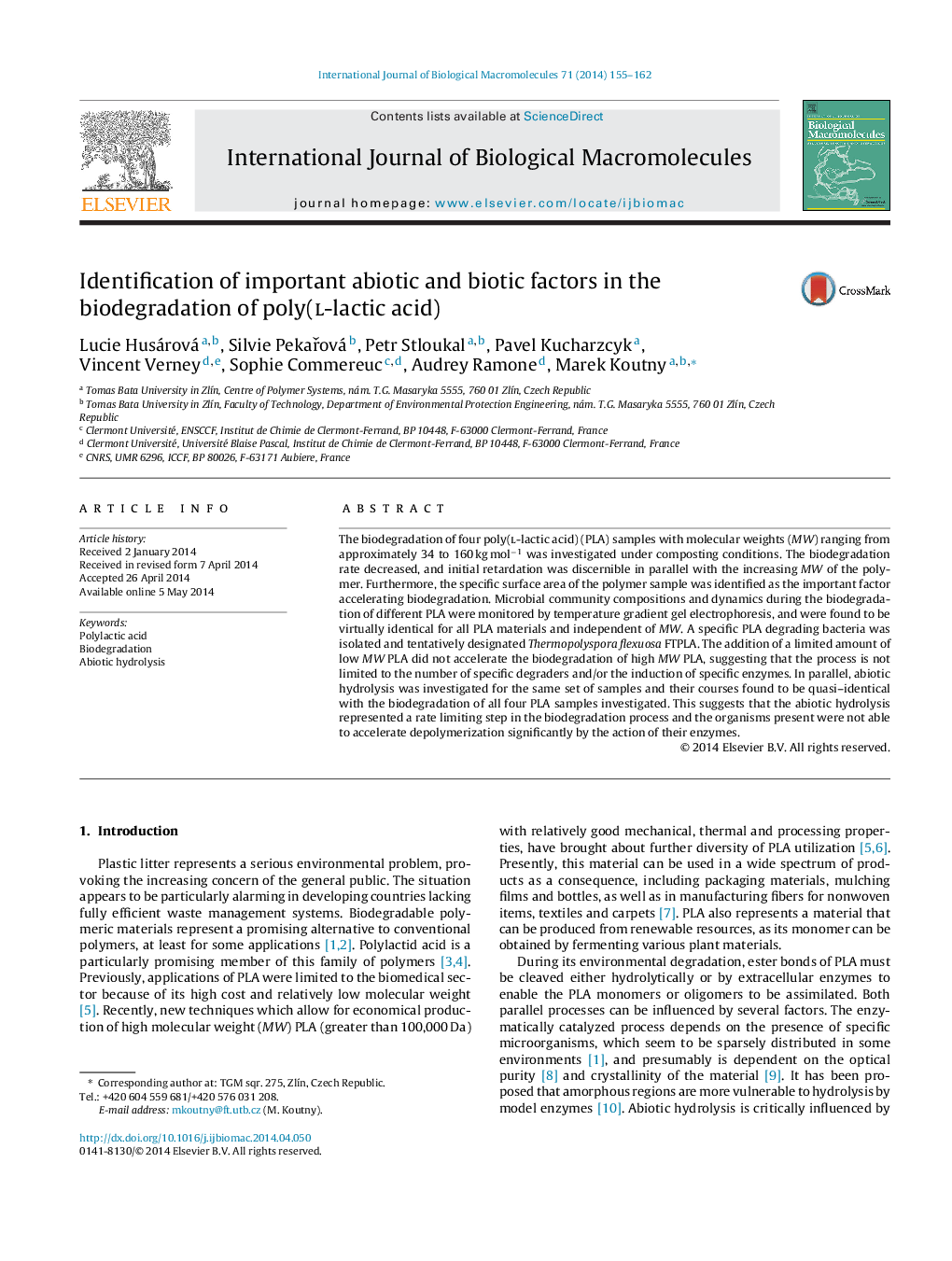| Article ID | Journal | Published Year | Pages | File Type |
|---|---|---|---|---|
| 1986459 | International Journal of Biological Macromolecules | 2014 | 8 Pages |
The biodegradation of four poly(l-lactic acid) (PLA) samples with molecular weights (MW) ranging from approximately 34 to 160 kg mol−1 was investigated under composting conditions. The biodegradation rate decreased, and initial retardation was discernible in parallel with the increasing MW of the polymer. Furthermore, the specific surface area of the polymer sample was identified as the important factor accelerating biodegradation. Microbial community compositions and dynamics during the biodegradation of different PLA were monitored by temperature gradient gel electrophoresis, and were found to be virtually identical for all PLA materials and independent of MW. A specific PLA degrading bacteria was isolated and tentatively designated Thermopolyspora flexuosa FTPLA. The addition of a limited amount of low MW PLA did not accelerate the biodegradation of high MW PLA, suggesting that the process is not limited to the number of specific degraders and/or the induction of specific enzymes. In parallel, abiotic hydrolysis was investigated for the same set of samples and their courses found to be quasi–identical with the biodegradation of all four PLA samples investigated. This suggests that the abiotic hydrolysis represented a rate limiting step in the biodegradation process and the organisms present were not able to accelerate depolymerization significantly by the action of their enzymes.
Graphical abstractFigure optionsDownload full-size imageDownload as PowerPoint slide
